Ensure sustainable consumption and production patterns

Ensure sustainable consumption and production patterns
Access to running water, basic sanitation, and urban waste is the foundation stone of a developed society. Poor infrastructure can lead to both spread of diseases and the waste of resources – both hurdles can cost vast amounts of money to solve.
The Water Resources Management Tool was created with these issues in mind. It enables holistic management of the water supply and waste disposal systems and answers to all the operational and commercial details of this sector. Thanks to artificial intelligence (AI), the solution is also an enabler to finding water leaks, infiltrations in the sewage network, and abusive water consumption.
Moreover, the integrated solution will help you save resources with its AI-propelled predictive maintenance feature, which can anticipate pipe malfunctions.
Potential Impact of this Product on the 12th SDG
12.2 By 2030, achieve sustainable management and efficient use of natural resources.
Given the multiple variables at stake, having a holistic view of a country’s revenue/tax collection and expenditures can be challenging. However, not having a vision of the balance can be a more demanding challenge for decision-makers. Quidgest’s approach on this subject is complex but simple to understand: centralize all the information in a single platform by providing common ground corporate services.
Individual departments usually carried out something that is now done a single time, reducing unnecessary duplication of effort, harmonizing policies, and consolidating relevant data under a single umbrella platform. Transparency, international credibility, and better resource management are some of the benefits of Quidgest’s Public Finance Shared Services solution.
Potential Impact of this Product on the 12th SDG
12.7 Promote public procurement practices that are sustainable, in accordance with national policies and priorities.
Institutions which already adopted this solution
Coordination and Regional Development Committees (Portugal); Portuguese Accreditation Institute (IPAC); Attorney General’s Office (Portugal); International Relations Fund (Portugal); National Institute for Agricultural and Veterinary Research (Portugal); Portuguese National Assembly
In a world where resources are scarce and time is precious, it is vital to efficiently manage both. Business fields where vehicles carry enormous importance can always improve their management.
Systems such as the Public Fleet Management Shared Services not only provide the immediate answer to this problem but also a clear and fast return on investment. The solution is able to track the fleet, manage operational costs as well as managing the security of the driver and its load, and monitoring the service provided based on personalized Key Performance Indicators.
Potential Impact of this Product on the 12th SDG
12.2 By 2030, achieve the sustainable management and efficient use of natural resources.
Entities which already adopted this product
Lisbon City Hall
12.1 Implement the 10-year framework of programmes on sustainable consumption and production, all countries taking action, with developed countries taking the lead, taking into account the development and capabilities of developing countries;
12.2 By 2030, achieve the sustainable management and efficient use of natural resources;
12.3 By 2030, halve per capita global food waste at the retail and consumer levels and reduce food losses along production and supply chains, including post-harvest losses;
12.4 By 2020, achieve the environmentally sound management of chemicals and all wastes throughout their life cycle, in accordance with agreed international frameworks, and significantly reduce their release to air, water and soil in order to minimize their adverse impacts on human health and the environment;
12.5 By 2030, substantially reduce waste generation through prevention, reduction, recycling and reuse;
12.6 Encourage companies, especially large and transnational companies, to adopt sustainable practices and to integrate sustainability information into their reporting cycle;
12.7 Promote public procurement practices that are sustainable, in accordance with national policies and priorities;
12.8 By 2030, ensure that people everywhere have the relevant information and awareness for sustainable development and lifestyles in harmony with nature;
12.A Support developing countries to strengthen their scientific and technological capacity to move towards more sustainable patterns of consumption and production;
12.B Develop and implement tools to monitor sustainable development impacts for sustainable tourism that creates jobs and promotes local culture and products;
12.C Rationalize inefficient fossil-fuel subsidies that encourage wasteful consumption by removing market distortions, in accordance with national circumstances, including by restructuring taxation and phasing out those harmful subsidies, where they exist, to reflect their environmental impacts, taking fully into account the specific needs and conditions of developing countries and minimizing the possible adverse impacts on their development in a manner that protects the poor and the affected communities.
Quidgest is a global technology company headquartered in Lisbon and a pioneer in intelligent software modeling and generation. Through its unique generative AI platform, Genio, develops complex, urgent, and specific systems, ready to evolve continuously, flexible, and scalable for various technologies and platforms. Partners and large organizations such as governments, multinational companies, and global multilateral institutions use Quidgest’s solutions to achieve their digital strategies.
R. Viriato, 7
1050-233 Lisboa | Portugal
Tel. +351 213 870 563
quidgest@quidgest.com